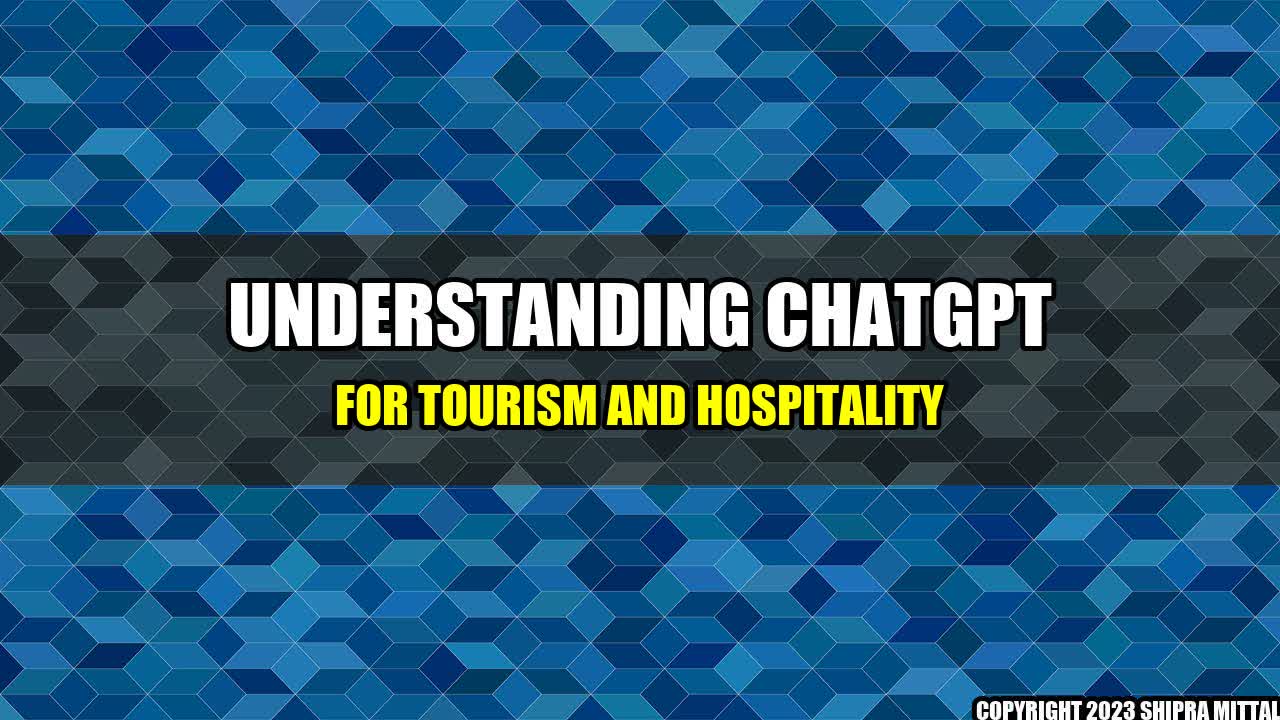Have you ever been stuck in the middle of a foreign city with no idea where to go or what to do? This was the predicament that Sarah found herself in when she visited Tokyo for the first time. She had heard many great things about Japan, but had never been to the country before. As she walked down the streets, feeling lost and confused, she suddenly heard a voice.
âHi there, can I help you with something?â the voice asked.
Startled, Sarah looked around and saw no one. The voice seemed to be emanating from her phone. She realised then that it was a chatbot that had been activated on her travel app. In a matter of minutes, she was chatting with a friendly and knowledgeable agent who gave her recommendations for restaurants, activities, and even helped her book a hotel room. Thanks to the chatbot, Sarah had a fantastic trip and returned home with many unforgettable memories.
Sarahâs experience is not unique. In recent years, the tourism and hospitality industries have seen a surge of chatbots and virtual assistants that are designed to help travellers navigate their trips. These chatbots are powered by Artificial Intelligence (AI) and can understand natural language, meaning that travellers can communicate with them in a way that feels like they are talking to a real person.
Many companies have adopted this technology and are using it to enhance their customersâ experiences. Some of the leading players in the tourism and hospitality industries are:
Booking.com, for example, uses a chatbot called Booking Assistant that can help travellers with things like confirming reservations, changing dates, and answering frequently asked questions. Similarly, Hilton has developed a chatbot called Connie that can provide guests with information about their hotel, recommendations for nearby attractions and even provide room service.
One of the main benefits of using chatbots in the tourism and hospitality industries is that they can provide travellers with 24/7 access to information and support. This means that travellers can receive assistance at any time of the day, whether they are in the middle of the night, in a different time zone, or simply too busy to sit down and make a phone call.
Another major advantage of chatbots is that they can save time and effort for both travellers and companies. By automating simple tasks like booking and confirming reservations, companies can free up their employees to focus on more complex and meaningful interactions with customers. At the same time, travellers can avoid long hold times on the phone or lengthy email exchanges, and instead receive immediate assistance through a chat window.
Finally, chatbots are helping to streamline the travel experience by providing personalised recommendations and insights that are tailored to each individual traveller. By analysing data like travel history, preferences, and search behaviour, chatbots can offer relevant suggestions for things like restaurants, activities, and even routes.
Conclusion
To sum up, the rise of chatbots in the tourism and hospitality industries is transforming the way we plan, book, and experience our trips. By providing 24/7 support, automating simple tasks, and offering personalised recommendations, chatbots are enhancing the overall travel experience for millions of travellers around the world. As AI technology continues to improve, we can expect to see even more advanced chatbots that can understand our needs and preferences, and provide more tailored and sophisticated assistance.

Akash Mittal Tech Article
Share on Twitter Share on LinkedIn